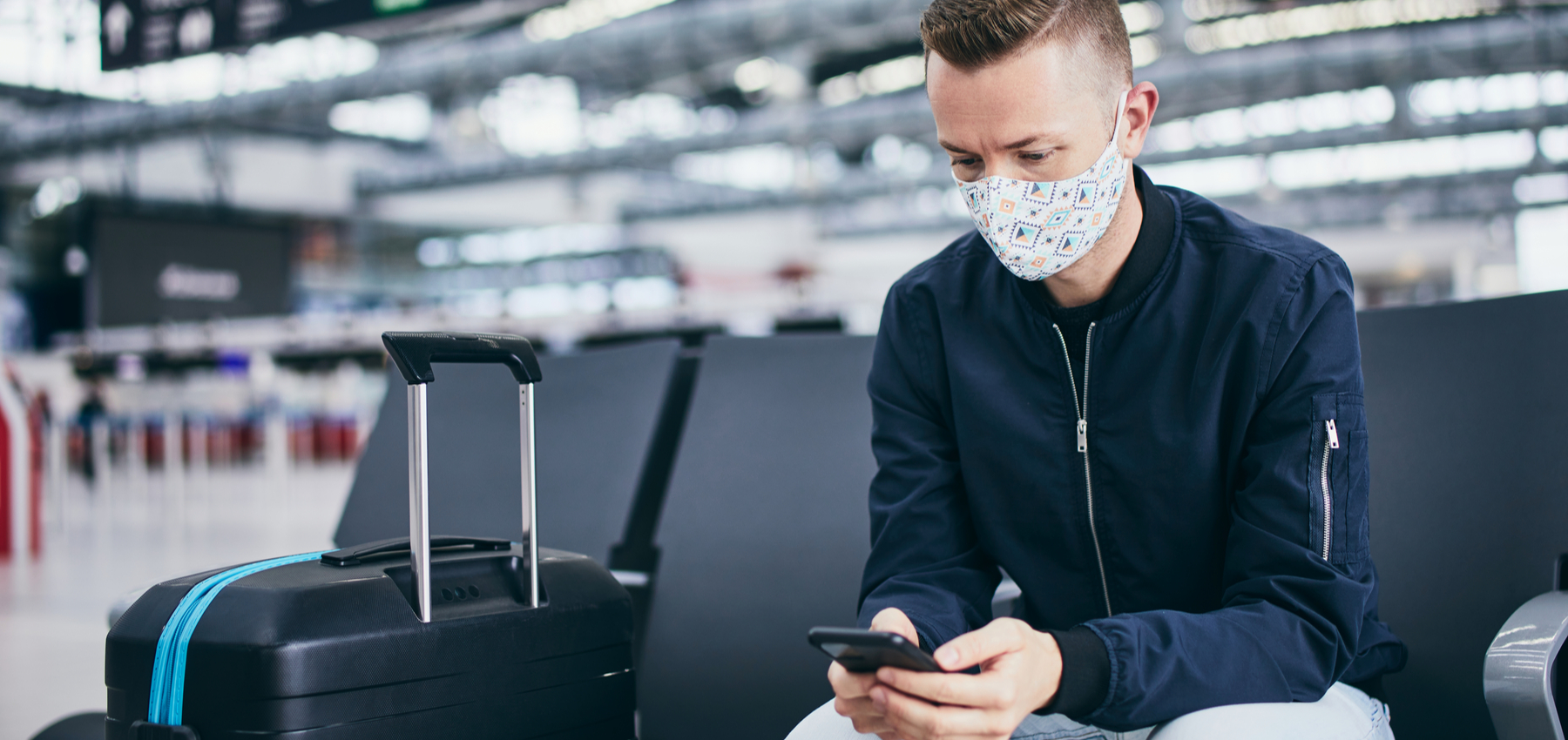Last updated: November 30, 2022
Even though the pandemic situation is showing signs of improvement and COVID-19 restrictions in Canada are easing, there’s still a sense of looming uncertainty for many newcomers. For newcomers who are preparing to move to Canada in these times, planning international travel amidst ever-changing border restrictions can be challenging.
Here’s a consolidated overview of all the must-know information to help you better plan your travel and understand what to expect once you arrive in Canada.
Effective October 2022, the Government of Canada has removed all COVID-19 related travel restrictions, including vaccination and testing requirements, quarantine, the mandatory use of ArriveCAN, and masking in public places. However, as the pandemic evolves, travel restrictions may continue to be updated, so please check the government’s website for up-to-date information. The information available in this article is no longer valid. |
Latest travel restrictions for Canada
Last updated: March 28, 2022
In addition to the multi-layered approach to COVID-19 already in place, the following new rules/restrictions have been introduced:
- Entry into Canada:
- As of February 28, 2022, all international airports are allowed to welcome international flights. Previously, all international commercial passenger flights, private/business flights, and charter flights are required to land at one of the following Canadian airports: Montréal-Trudeau International Airport, Toronto Pearson International Airport, Calgary International Airport, Vancouver International Airport, Halifax Stanfield International Airport, Québec City Jean Lesage International Airport, Ottawa Macdonald–Cartier International Airport, Winnipeg James Armstrong Richardson International Airport, and Edmonton International Airport.
- Starting April 1, 2022, fully vaccinated travellers will no longer require a pre-arrival COVID-19 test to enter Canada. Previously, all travellers arriving in Canada, with some exceptions, were required to take a COVID-19 test prior to boarding a flight to Canada. As of February 28, 2022, travellers have the option of using a COVID-19 rapid antigen test result (taken the day prior to their scheduled flight or arrival) or a molecular test result (taken no more than 72 hours before their scheduled flight) to meet pre-entry requirements.
- Fully-vaccinated travellers will be randomly selected for on-arrival COVID-19 testing and will not need to quarantine while awaiting test results. Children under 12 years old, travelling with fully vaccinated adults, will continue to be exempt from quarantine.
- Travellers who are not fully vaccinated will be required to take two post-arrival COVID-19 molecular tests, on day 1 and day 8 of their 14-day quarantine. They will be provided with a COVID-19 test kit and instructions before leaving the airport. Unvaccinated foreign travellers will not be allowed to enter Canada unless they meet one of the few exemptions and have a valid reason to enter Canada.
- Travel restrictions and quarantine requirements for fully vaccinated travellers were eased with effect from July 5, 2021. This move exempts fully vaccinated Canadian citizens, Permanent Residents, international students with a valid study permit, CoPR holders, temporary foreign workers with a valid work permit, and immediate family members of these authorized travellers from the 14-day quarantine requirement.
- With effect from August 9, 2021, the 3-night hotel stopover requirement was eliminated for all travellers arriving by air.
- Quarantine plan:
- Travellers entering Canada are responsible for making suitable arrangements for their quarantine, which begins on the day they enter Canada. Non-vaccinated travellers will be required to plan for a 14 day quarantine. Starting February 28, 2022, fully vaccinated travellers will no longer be required to quarantine while waiting for their post-arrival COVID-19 test results. However, they will still be required to have a quarantine plan in place in case they test positive at their port of entry.
- For a quarantine location to be deemed suitable, travellers cannot stay with at-risk subpopulations including people who work in hospitals or long-term care facilities, adults over the age of 65, or those who are immunocompromised or at risk for more severe disease outcomes. In addition, travellers must avoid all contact with others in their household with whom they did not travel.
- As of February 22, 2021, all travellers, whether arriving by land or air will be required to submit their travel and contact information, including a suitable quarantine plan, electronically via the ArriveCAN app before crossing the border or boarding a flight.
- Travellers arriving in Canada must also continue to submit COVID-related information electronically daily throughout their quarantine, if one is required.
- Compliance with quarantine measures: Authorized Screening Officers will visit travellers’ quarantine locations to establish contact, confirm the identity and confirm that travellers are at the place of quarantine they identified upon entry into Canada.
- Penalties and fines: Violation of any quarantine or isolation instructions provided to travellers by a Screening Officer or quarantine officer when entering Canada is an offence under the Quarantine Act and could lead to serious penalties, including six months in prison and/or $750,000 CAD in fines.
| Are you a permanent resident (PR) or an international student planning your travel to Canada? Read the following articles for measures specific to your situation and to get tips to plan your quarantine upon arrival in Canada: |
|---|
Who can travel to Canada during COVID-19?
As per the guidelines outlined by the government of Canada, you may be able to enter Canada if you are:
- A Canadian citizen, dual Canadian citizen, a permanent resident, a person registered under Canada’s Indian Act, or a protected person.
- A permanent resident (PR) whose application was approved before March 18, 2020.
- A PR whose Confirmation of Permanent Residence (COPR) was issued after March 18, 2020, and is an immediate family member sponsored by a Canadian citizen or PR.
- A PR’s spouse, common-law partner and/or child and were included in the PR application that was approved before March 18, 2020.
- Fully vaccinated and an immediate family member (spouse, common-law partner, dependent child, grandchild, parent, step-parent, guardian, or tutor) of a PR or Canadian citizen who is living in Canada.
- Fully vaccinated and an extended family member of a Canadian citizen, a person, registered under Canada’s Indian Act or permanent resident.
- A fully vaccinated international student attending an approved Designated Learning Institution (DLI) and holding either a valid study permit or a letter of introduction showing that they’ve been approved for a study permit.
- A temporary foreign worker with a valid work permit and a job offer.
- A foreign national with a valid visa travelling to Canada for a compassionate reason and holding an authorization from the Public Health Agency of Canada (PHAC) to travel to and enter Canada.
- A fully vaccinated foreign national travelling to Canada for discretionary purposes.
- A foreign national who has been exempt from the travel restrictions.
- A transiting passenger.
- A temporary foreign worker coming from outside the U.S.
- An International Experience Canada (IEC) applicant taking part in the Working Holiday, Young Professional or International Co-op categories.
|
Notes:
- Other individuals exempted from travel restrictions are listed on the government of Canada website.
- If your PR application is approved, but you can’t travel to Canada before your documents and Confirmation of Permanent Residence expire, IRCC will contact you (if they haven’t already) to inquire if you’re able to travel to Canada and will issue instructions on extending your expired CoPR. Once they approve you to come to Canada, they will issue you the documents you need to travel.
Tip: Use the free tool from the Government to find out if you can travel to Canada at this time. Just answer a few questions and get your result. Additionally, before you plan your travel be sure to check provincial and territorial travel restrictions as they are updated regularly.
What are the admission criteria for travellers entering Canada?
- You must be eligible (see the list of who can travel to Canada above).
- All air passengers five years of age or older are required to present a negative COVID-19 PCR test result (taken within 72 hours of departure) or a negative antigen test (taken within 24 hours of your departure to Canada) to the airline prior to boarding a flight to Canada. Effective April 1, 2022, fully vaccinated travellers no longer require a pre-arrival COVID-19 test to enter Canada.
- You may have to provide evidence that you would be staying in Canada for at least 15 days.
- Even if you have no symptoms and are fully vaccinated, it is mandatory to have a quarantine plan. A quarantine plan should include:
- A place where you will be staying,
- How you will get to your destination from the airport,
- How you will get your groceries, and
- How you will access essential services and medical care
- IEC candidates:
- You will need a valid job offer, including a written note from the employer in Canada outlining that their business is continuing to operate and confirming your start date after the mandatory 14-day quarantine;
- A Port of Entry (POE) Letter of Introduction; and
- Proof of adequate health coverage.
- You are required to submit your travel and contact information, quarantine plan, and COVID-19 symptom self-assessment electronically through the ArriveCAN mobile app before you board your flight. You must be ready to show your ArriveCAN receipt when seeking entry into Canada; a border services officer will verify that you have submitted the information digitally. If you do not submit the required information digitally before boarding the flight, you could be subject to enforcement action, which can range from verbal warnings to a $1,000 CAD fine.
Helpful links from the government of Canada
- Infographic for travellers arriving by air
- Infographic for travellers arriving by land
- Planning your entry into Canada
- Free tool to determine if you can enter Canada at this time – answer a few questions to get your result
- Latest travel restrictions, exemptions, and advice
- Priority processing and special measures to come to Canada for residents of Hong Kong (November 12, 2020)
- Who can travel to Canada
- Provincial and territorial travel restrictions
- Quarantine guidelines and rules
- The ArriveCAN mobile app
- Check application processing times
- How COVID-19 is affecting IRCC services
- Latest COVID-19 announcements in Canada
- Canada’s COVID-19 outbreak update




